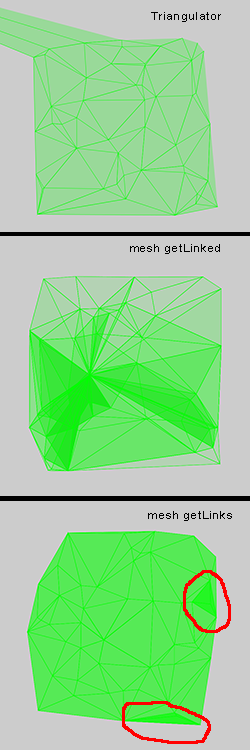Howdy, Stranger!
We are about to switch to a new forum software. Until then we have removed the registration on this forum.
Categories
- All Categories 25.7K
- Announcements & Guidelines 13
- Common Questions 30
- Using Processing 22.1K
- Programming Questions 12.2K
- Questions about Code 6.4K
- How To... 4.2K
- Hello Processing 72
- GLSL / Shaders 292
- Library Questions 4K
- Hardware, Integration & Other Languages 2.7K
- Kinect 668
- Arduino 1K
- Raspberry PI 188
- Questions about Modes 2K
- Android Mode 1.3K
- JavaScript Mode 413
- Python Mode 205
- Questions about Tools 100
- Espanol 5
- Developing Processing 548
- Create & Announce Libraries 211
- Create & Announce Modes 19
- Create & Announce Tools 29
- Summer of Code 2018 93
- Rails Girls Summer of Code 2017 3
- Summer of Code 2017 49
- Summer of Code 2016 4
- Summer of Code 2015 40
- Summer of Code 2014 22
- p5.js 1.6K
- p5.js Programming Questions 947
- p5.js Library Questions 315
- p5.js Development Questions 31
- General 1.4K
- Events & Opportunities 288
- General Discussion 365
In this Discussion
- jeremydouglass June 2017
- PJMcPrettypants June 2017
Delaunay Triangles
I want to get Delaunay triangles from an array of points.

I tried using the code I found here: https://github.com/GlitchTools/Atagen/blob/master/GRDelaunay/Triangulator.pde
That gave me my triangles but also always added one extra point stretching off outside the canvas!
Lee Byron's mesh library seemed like it might be a better way to go http://leebyron.com/mesh/
However, the Delaunay class in that library doesn't actually return triangles or groups of three points - just links between pairs of indices in the points array.
I tried using getLinked() to find the points that link to each point, but that was a mess. My guess is that while the numbers it returns are indices to the original array, the number it takes as a parameter is not.
Finally I tried using getLinks(), and nested loops to search through all the links to find matches.
ArrayList<Triangle> triangles = new ArrayList<Triangle>(); //the Triangle class just stores 3 PVectors
int[][] myLinks = myDelaunay.getLinks();
//search the links
for (int a = 0; a < myLinks.length; a++) { // loop through all links
int aStart = myLinks[a][0];
int aEnd = myLinks[a][1];
for (int b = 0; b < myLinks.length; b++) { //loop through all links again...
//...except a
if (!(b == a)){
//Links that connect to the starting point could be either way round
//if start of b connects to start of a
if (myLinks[b][0] == aStart){
for (int c = 0; c < myLinks.length; c++) {
//And the remaining link could be either way round
if ((myLinks[b][1] == myLinks[c][0])&&(myLinks[c][1] == aEnd)){
Triangle foundTri = new Triangle();
foundTri.p1 = new PVector(floatPoints[aStart][0], floatPoints[aStart][1]);
foundTri.p2 = new PVector(floatPoints[myLinks[b][1]][0], floatPoints[myLinks[b][1]][1]);
foundTri.p3 = new PVector(floatPoints[aEnd][0], floatPoints[aEnd][1]);
triangles.add(foundTri);
}
if ((myLinks[b][1] == myLinks[c][1])&&(myLinks[c][0] == aEnd)){
Triangle foundTri = new Triangle();
foundTri.p1 = new PVector(floatPoints[aStart][0], floatPoints[aStart][1]);
foundTri.p2 = new PVector(floatPoints[myLinks[b][1]][0], floatPoints[myLinks[b][1]][1]);
foundTri.p3 = new PVector(floatPoints[aEnd][0], floatPoints[aEnd][1]);
triangles.add(foundTri);
}
}
}
//if end of b connects to start of a
if (myLinks[b][1] == aStart){
for (int c = 0; c < myLinks.length; c++) {
//And the remaining link could be either way round
if ((myLinks[b][0] == myLinks[c][0])&&(myLinks[c][1] == aEnd)){
Triangle foundTri = new Triangle();
foundTri.p1 = new PVector(floatPoints[aStart][0], floatPoints[aStart][1]);
foundTri.p2 = new PVector(floatPoints[myLinks[b][0]][0], floatPoints[myLinks[b][0]][1]);
foundTri.p3 = new PVector(floatPoints[aEnd][0], floatPoints[aEnd][1]);
triangles.add(foundTri);
}
if ((myLinks[b][0] == myLinks[c][1])&&(myLinks[c][0] == aEnd)){
Triangle foundTri = new Triangle();
foundTri.p1 = new PVector(floatPoints[aStart][0], floatPoints[aStart][1]);
foundTri.p2 = new PVector(floatPoints[myLinks[b][0]][0], floatPoints[myLinks[b][0]][1]);
foundTri.p3 = new PVector(floatPoints[aEnd][0], floatPoints[aEnd][1]);
triangles.add(foundTri);
}
}
}
}
}
}
This had two problems: it takes several minutes to run and it seems to find extra larger triangles around groups of smaller ones.
Is there a good way to go from the links in the mesh library to Delaunay triangles?

Answers
I searched the forum and found a link to an old library called Triangulate here: http://n.clavaud.free.fr/processing/triangulate/triangulate-20100628.zip
This is very similar to the first code I used but it doesn't produce that weird extra vertex, so problem solved.
I will still have to use the mesh library as well because I also want to find a convex hull for the same set of points. It would be good if there was a nice way to do it all with just one library and one array of points but for now I'll use Triangulate for the triangles and mesh for the convex hull.
@PJMcPrettypants -- thanks for sharing your solution with the forum.